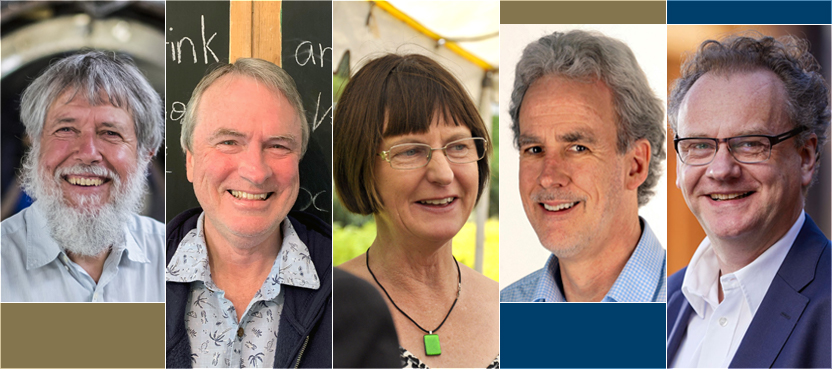
Academy Fellows Emeritus Professor David Blair, Professor David McClelland and Professor Susan Scott, with their colleague Professor Peter Veitch, have been jointly awarded the Prime Minister’s Prize for Science for their significant contribution to the first direct detection of gravitational waves, while Academy Fellow Professor Thomas Maschmeyer has been awarded the Prime Minister’s Prize for Innovation.
The Prime Minister’s Prizes for Science were presented by the Prime Minister Scott Morrison and the Minister for Industry, Science and Technology Karen Andrews during an online public event.
Traditionally, the Academy acknowledges prize recipients the morning after the awards with a breakfast at the Shine Dome, but this year it is celebrating online to recognise the leading researchers, innovators and teachers.
Academy Fellows have featured each year since the prizes’ inception in 2000.
All four recipients of the Prime Minister’s Prize for Science are Chief Investigators at the ARC Centre Of Excellence For Gravitational Wave Discovery (OzGrav).
Gravitational wave detectors allow scientists to detect and understand parts of the universe that are invisible to all other methods of detection.
OzGrav's work ensured the stability of high-power laser beams and the optical perfection of mirrors in the detectors, and provided the theoretical underpinnings to the model for black hole collisions that enabled the detected signal to be definitively identified.
Academy Fellow Professor Thomas Maschmeyer received the Prime Minister’s Prize for Innovation for his work in developing a process for recycling mixed plastics and a new energy storage platform.
His catalytic thermal reactor efficiently converts mixed plastics into smaller hydrocarbon components that can be used to produce sustainable chemicals or as a sustainable fuel, while his ‘Gelion’ energy storage platform uses safe, low-cost zinc-bromide battery technology to store renewable energy, reducing our reliance on lithium-ion and lead-acid batteries.
© 2026 Australian Academy of Science